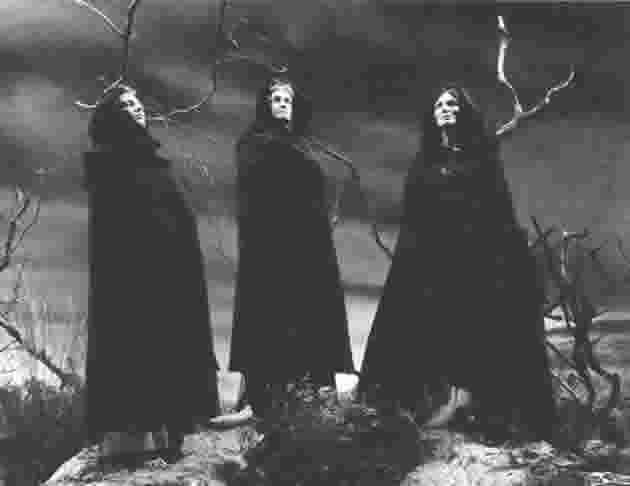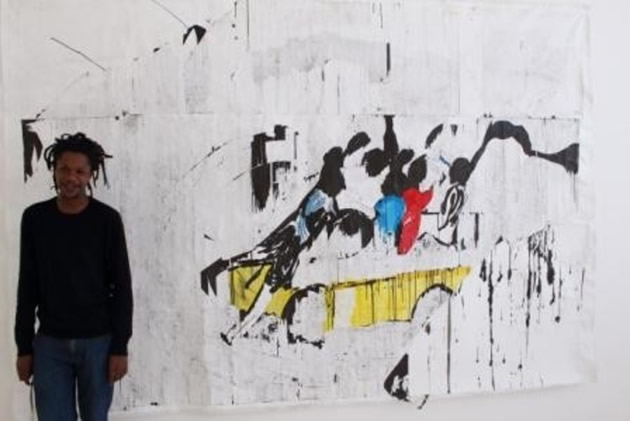Death and the fear of witchcraft


THE THREE WITCHES . . . Witchcraft is a thorny issue in most societies the world over, as is depicted in William Shakespeare’s play “Macbeth”. In Africa, death, like sickness, is perceived to be linked to a supernatural third force
Sekai Nzenza On Wednesday
Our cousin Laiza no longer comes back to the village because she says there are too many witches roaming around the gravesites at night looking for those who died recently.
Laiza knows this to be true because the prophetess at her church told her so. During a prayer session at the church in Harare, Prophetess Ruth laid her hands on Laiza and said she had seen a vision in which several devil worshippers and Satanists were now stationed somewhere in our village. I have not seen these evil people, neither has Madzibaba Jeremiah who has a huge following around our village and right across Save River.
But this is not the first time that I have heard about witches living among us. When I was growing up in this village, they always talked about varoyi, the witches. My grandmother, Mbuya VaMandirowesa knew all the witches in our village and also in many villages nearby.
Once she gathered all of us children in her big hut, closed the door and instructed us never to eat food in anyone’s house, unless she gave permission for us to do so. Mbuya said one of our uncle’s wives, Mainini Mai Jasi, was a witch and we should not eat her food.
Each time we went past Mainini Mai Jasi’s house, we smelt something nice, like mafetikuku (vetkoeks), those buns made from flour and fried in hot oil. Sometimes you could smell fried chicken and rice. Since such a dish was rare, we longed to be invited in to eat with her and the children. But we knew that was against Mbuya’s rules. “If you want to die, eat what that woman cooks for you,” Mbuya said.
When witchcraft accusations against her increased, Mainini left the village one day with her three children. She never came back. Her hut still stood there, abandoned, until the roof fell in. Nobody entered it or touched her belongings. They said a woman’s possessions cannot be touched by those who do not come from her maternal village.
Besides, why would anyone want to use the belongings of a witch?
There were other deaths in the village after Mainini left. I recall that the elders got together and summoned a n’anga or traditional healer from Chipinge, near the border with Mozambique. Mbuya said n’angas from there were renowned to know all the traditional medicines capable of healing, maiming or killing.
The n’anga arrived wearing an old black suit, a leopard skin cap, an eland skin sash thrown across his shoulders, carrying a big bag full of medicines and bones. He moved from house to house, seeking out witchcraft accessories like hyenas, snakes, owls, zvikwambo, effigies, gnomes, zvidhoma and poison concoctions in people’s granaries and other secret places.
He then set fire to his findings before anyone could see them because such accessories could only be seen by those with medicinal powers to see, vakarapirwa. Moving from one granary to the other he proceeded to burn twigs that smelt like incense. For some time, we all believed that we had become immune to the witches’ powers.
But this belief in witchcraft has not left our village.
When our cousin Taurai died three years ago, we travelled to the village in a convoy from Harare with Taurai’s body and arrived in the village just before sunset. The burial society women were already there; busy cooking, sweeping the yard and fetching water. They stopped to embrace Mai Taurai and mourn, calling her by name: “Nhai Mai Taurai, nhai Mai Tau, woviga vangani? How many shall you bury?” They wailed. Mai Taurai made groaning sounds but showed no tears.
Inside the kitchen hut, they placed Taurai’s coffin on the bench at the front. His widow sat at the bottom end of the coffin with her two children, while his mother sat at the top end surrounded by her close relatives. A big bouquet of flowers from his kombi driver friends were placed on top of the coffin.
At midnight the preaching began with the Anglican pastor followed by Apostle Madzibaba Jeremiah who preached about the universal nature of death. He stood there in his long white gown, tall, shaved head, a beard and carrying a big rod. To grieve and mourn is the way of creation, masikirwo edu, he said. Not once did he open the Bible. Yet he quoted whole verses from memory word-for-word, encouraging us to accept death with hope.
He recited I Thessalonians 4 verse 13- 14: “Brothers, we do not want you to be ignorant about those who fall asleep, or to grieve like the rest of men, who have no hope. We believe that Jesus died and rose again and so we believe that God will bring with Jesus those who have fallen asleep in him.” Madzibaba said do not cry without hope. Musacheme sevamwe avo, vasina tariro. Then, in a deep voice, he sang a song about crossing the river Jordan and we all rose and sang with him.
At dawn, a lone voice sang to say daylight was near and suddenly there was an outpouring of shared grief. We felt it. Mai Taurai walked out singing, but not crying. Nobody followed her. Someone said the witches should have mercy on Mai Taurai because this was her third child to die in five years.
We buried Taurai on the anthill in his mother’s field near the road. The morning after his burial, we all walked around his grave at sunrise looking for the footprints of witches. We did not see any.
But there was a strong feeling that a witch was definitely involved in Taurai’s death. People pointed at a mysterious little bag with an oil calabash and some twigs belonging to Tete Stella’s deceased Malawian husband. They whispered that the Malawian was a foreigner, a mubvakure whose medicine could only bring bad luck to the village.
Tete Stella was forced to throw her dead husband’s clothes and the calabash of oil and twigs into the river.
Just over two years ago, a guy called Tsikamutanda arrived claiming to cleanse the villages of witchcraft. He moved from one homestead to the other, pulling out strange things similar to what the Chipinge n’anga had produced many years before. Tsikamutanda named the “witches”. They were paraded and shamed. For his services, Tsikamutanda walked away with cows, goats, chickens and money from the people accused of witchcraft, who happened quite often to be vulnerable old women.
Some of us said Tsikamutanda was fake and greedy. Sabhuku, the village head and others, did not believe us. In the end, we let them lose their cows because they believed that all the witches’ powers will be gone.
These days, if you come to our village and mention Tsikamutanda’s name, people shake their heads and say they were cheated because the belief that witches still exist among us has not gone away.
“Was Mainini Mai Jasi a witch?” I asked Apostle Madzibaba Jeremiah the other day, when we happened to meet near Mainini Mai Jasi’s old homestead which is now just a ruin.
Madzibaba said he remembered Mai Jasi as well and she might not have been a witch at all. Mainini Mai Jasi was the only one in the whole compound whose husband worked in Bulawayo and he often came home during holidays. In between the holidays, Babamunini sent groceries and money. Mainini was beautiful and she dressed well.
She was also very light-skinned and there was a saying that mukadzi mutsvuku muroyi, meaning a very light skinned woman is a witch. Maybe that is why people in the village compound did not like her. Madzibaba said people were just jealous of Mainini. Or maybe they feared the unknown, like most of us and like Laiza, who swears never to come back to the village for fear of witches.
“Little does she know, that when we are poor or are stressed, we point to others and blame them for our misfortunes,” said Madzibaba. “Witches may or may not exist. But why should we worry about that? We should simply believe in God and in the goodness of humankind.”
- Dr Sekai Nzenza is a writer and cultural critic.










Comments